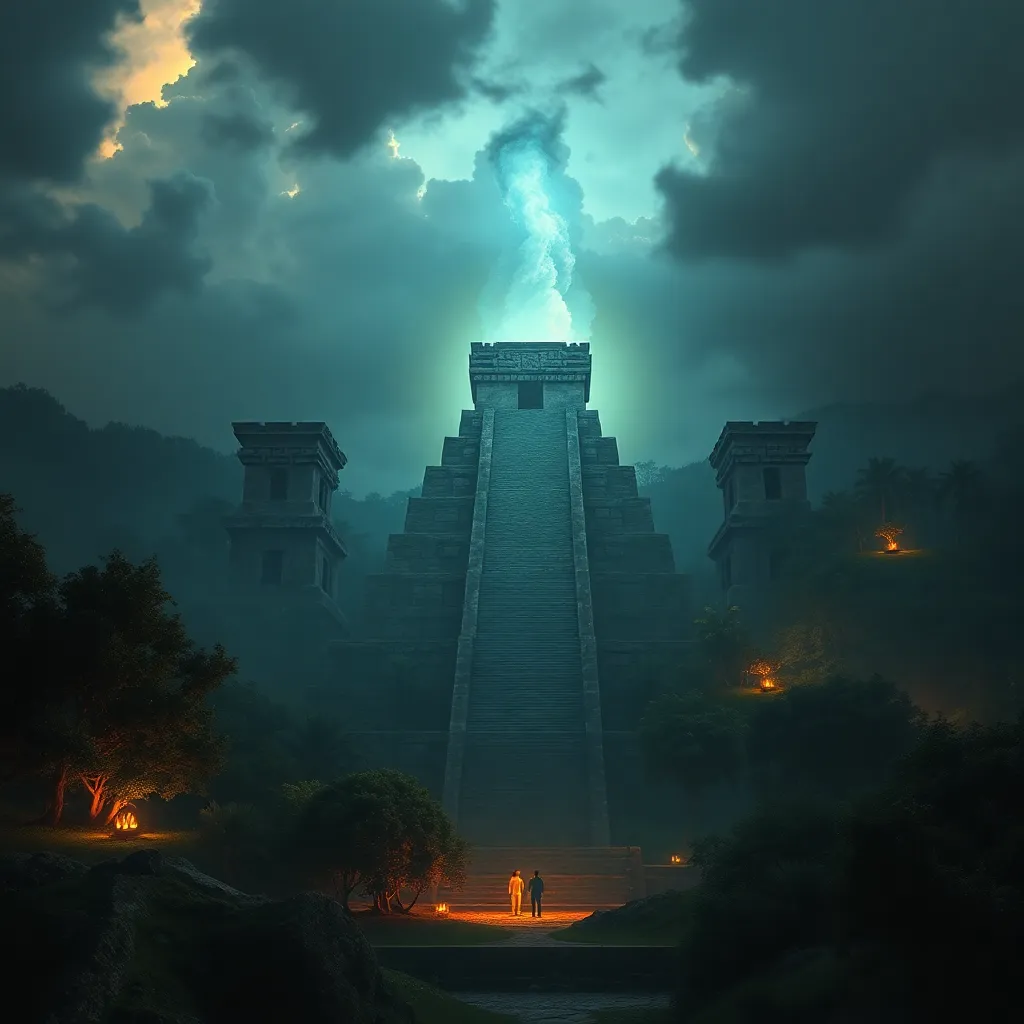Jinn of the Crossroads: Ifrit and the Supernatural in Islamic Belief
I. Introduction
In Islamic theology, the concept of jinn is a significant aspect of understanding the unseen world. Jinn are supernatural beings created from smokeless fire, possessing free will much like humans. They exist in a parallel realm, influencing the physical world in various ways. This article delves into the significance of jinn, particularly focusing on Ifrit, a powerful category of jinn, and their connection to the crossroads, a pivotal symbol in folklore.
The crossroads, often seen as a liminal space, hold a unique place in various cultures, representing a meeting point of different paths and realms. This article aims to explore the role of Ifrit within the broader context of Islamic supernatural beliefs and how these entities interact with the spiritual landscape, particularly at crossroads.
II. The Nature of Jinn
A. Classification of Jinn in Islamic tradition
In Islamic tradition, jinn are classified into several categories based on their characteristics and behaviors. The main classifications include:
- Muslims: Jinn who follow the teachings of Islam.
- Kafirs: Non-believing jinn who do not adhere to any faith.
- Shayatin: Malevolent jinn, often associated with mischief and evil.
- Ifrit: A specific type of powerful jinn known for their strength and cunning.
B. Characteristics and abilities of Jinn
Jinn possess various characteristics that set them apart from humans and angels:
- They can be invisible or take on different forms.
- They have the ability to travel quickly and can be present in multiple places at once.
- Jinn can interact with humans, sometimes aiding them but often leading them astray.
- They are endowed with intelligence and emotions, experiencing both good and evil.
C. Jinn vs. Angels and Humans: Understanding the differences
To understand jinn, it is essential to differentiate them from angels and humans:
- Angels: Created from light, they are obedient to God and do not possess free will.
- Humans: Created from clay, endowed with reason and free will, capable of good and evil.
- Jinn: Created from fire, possessing free will, capable of both good and evil, often existing in a realm that overlaps with both humans and angels.
III. Understanding Ifrit
A. Historical context and etymology of the term “Ifrit”
The term “Ifrit” is derived from Arabic, with roots in ancient texts and folklore. Historically, Ifrits are depicted as formidable beings, often associated with fire and destruction. Their etymological roots suggest a connection to the Arabic verb “afar,” meaning to be strong or powerful, highlighting their formidable nature.
B. Distinctive traits and powers of Ifrit
Ifrits are characterized by their immense strength, intelligence, and ability to manipulate flames. They are often depicted with the following traits:
- Ability to change shape and appear as animals or humans.
- Mastery over fire, capable of creating and controlling flames.
- Possessing great knowledge of the unseen world.
- Ability to travel vast distances instantaneously.
C. Ifrit in Islamic texts: The Quran and Hadith references
Ifrit are mentioned in various Islamic texts, including the Quran and Hadith. One notable reference is in Surah Al-Naml, where an Ifrit offers to bring the throne of Queen Bilqis to Solomon. This story underscores their power and intelligence, serving as both a helper and a potential threat.
IV. The Crossroads in Folklore
A. Symbolism of crossroads in various cultures
Crossroads hold significant symbolic meaning across different cultures. They are often viewed as places of choice, transformation, and encounters with the divine or supernatural. In many traditions, they are seen as:
- A point of decision-making and fate.
- A boundary between the physical and spiritual realms.
- A site for rituals and offerings to spirits.
B. The crossroads as a meeting point of worlds
Crossroads are considered liminal spaces where different realities intersect. They are believed to be places where spirits and humans can interact, making them rich in folklore and supernatural significance.
C. The significance of crossroads in Jinn lore
In Jinn lore, crossroads are particularly important. They are thought to be places where jinn congregate, making them potential sites for encounters with Ifrit and other supernatural beings. Many stories describe how one might summon jinn or encounter them at these junctions.
V. Ifrit as Guardians and Tricksters
A. The dual nature of Ifrit: Protectors vs. Malevolent beings
Ifrit embody a dual nature; they can be both protectors and tricksters. In some tales, they serve as guardians of treasures or sacred places, while in others, they lead humans astray or cause chaos.
B. Notable stories of Ifrit encounters in Islamic tradition
Numerous stories in Islamic tradition recount encounters with Ifrit:
- The tale of King Solomon, who commanded Ifrit to assist him in building the Temple.
- Stories of individuals who unwittingly summon Ifrit at crossroads, leading to unexpected consequences.
C. The role of Ifrit in folklore and oral traditions
Ifrit have a prominent place in folklore and oral traditions, where they are depicted as both wise and cunning. Many tales caution against underestimating their power, emphasizing the need for respect when dealing with these beings.
VI. Contemporary Interpretations of Ifrit
A. Ifrit in modern media and popular culture
In contemporary culture, Ifrit have been represented in various forms of media, including literature, film, and video games. They are often portrayed as fiery demons or powerful allies, reflecting both their fearsome and protective traits.
B. How contemporary beliefs shape the understanding of Ifrit
Modern interpretations of Ifrit often blend traditional beliefs with contemporary themes, leading to a reimagining of these beings in a more relatable context. This evolution highlights the adaptability of folklore in the face of changing societal values.
C. The relevance of Ifrit in today’s spiritual practices
Today, Ifrit continue to be relevant in various spiritual practices. Some individuals invoke Ifrit for protection or guidance, while others view them as symbols of the complexities of human nature—both light and dark.
VII. Theological Implications of Ifrit in Islamic Belief
A. The role of Ifrit in understanding the unseen world
Ifrit play a crucial role in Islamic beliefs about the unseen world. They serve as reminders of the complexities of existence beyond human perception and the importance of acknowledging the spiritual realm.
B. Ifrit and the moral lessons within Islamic teachings
The stories of Ifrit often carry moral lessons, illustrating the consequences of arrogance, greed, and the pursuit of power. They serve as cautionary tales about the dangers of straying from the path of righteousness.
C. The impact of Ifrit beliefs on Islamic spirituality
Beliefs in Ifrit influence Islamic spirituality by encouraging a deeper understanding of the unseen world. They remind believers of the constant presence of supernatural forces and the need for vigilance in faith and moral conduct.
VIII. Conclusion
In summary, the exploration of Ifrit and their connection to the crossroads reveals the intricate tapestry of Islamic supernatural beliefs. The dual nature of Ifrit as both protectors and tricksters illustrates the complexities of jinn in folklore. The enduring legacy of Ifrit within Islamic culture underscores the intersection of belief, folklore, and the supernatural, reminding us of the rich narratives that shape our understanding of the unseen world.
The significance of Ifrit and jinn continues to resonate in contemporary society, reflecting humanity’s ongoing fascination with the mystical and the unknown. As we navigate our paths,



